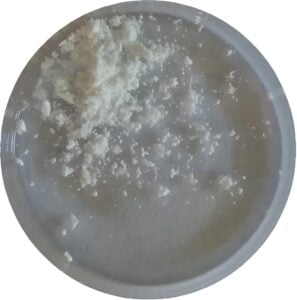Mephedrone hydrochloride (4mmc, meow meow, mcat, meph) is a stimulant drug that is rapidly gaining popularity among recreational drug users. While the effects of the drug have not been thoroughly studied, users report feelings of euphoria, energy, and alertness after taking mephedrone hydrochloride. This article will discuss what mephedrone hydrochloride is, why it is used in its salt form, the advantages of using mephedrone hydrochloride, and the potential risks associated with its use.
What is Mephedrone Hydrochloride?
Mephedrone Hydrochloride (4-methylmethcathinone hydrochloride) is a synthetic psychoactive drug that belongs to the family of substituted cathinones. It has a molecular formula of C11H15NO*HCl and a molecular weight of 241.7 g/mol.
Mephedrone is a derivative of cathinone, which is a naturally occurring stimulant found in the khat plant. However, unlike cathinone, Mephedrone is a synthetic compound that is produced in a laboratory.
The chemical structure of Mephedrone Hydrochloride consists of a phenethylamine core with a methyl group attached to the alpha carbon, a ketone group attached to the beta carbon, and a methylene bridge between the phenyl ring and the amino group. The hydrochloride salt of Mephedrone is added to increase its solubility in water and enhance its stability.
Why is Mephedrone Used in its Salt Form?
Mephedrone is typically used in its salt form, known as Mephedrone Hydrochloride, for several reasons. One of the main reasons is that the hydrochloride salt is highly water-soluble, making it easier to dissolve in water and other solvents. This is important for several applications, such as in the manufacturing of pharmaceuticals or research chemicals, where precise dosing and solubility are critical.
Another reason why 4mmc is used in its salt form is to increase its stability and shelf life. The hydrochloride salt of Mephedrone is a more stable form that is less prone to degradation and decomposition than the free base form. This helps to preserve the potency and purity of the drug over time, ensuring that it remains effective and safe for use.
The use of Mephedrone also allows for easier handling and storage, as the salt form is less volatile and less likely to evaporate than the free base form. This is particularly important for applications that require the drug to be transported, stored, or used in controlled laboratory settings.

Mephedrone Hydrochloride Advantages
Mephedrone hydrochloride is typically taken orally, insufflated, injected, or vaporized. The effects of mephedrone generally last anywhere between 3 and 5 hours. The medical advantages of mephedrone are largely unknown at this time. Some studies suggest that the drug may have potential therapeutic uses in the treatment of depression and anxiety, although more research is needed to confirm these findings. Additionally, some people have reported feeling more energized and alert after taking mephedrone hydrochloride, although this is not officially endorsed by medical professionals.
The primary advantage of mephedrone hydrochloride is its ability to produce feelings of euphoria and increased energy and alertness. Additionally, it has been found to have fewer side effects than other stimulant drugs such as cocaine and amphetamines. The drug is also relatively easy to obtain, making it more accessible than other stimulant drugs.
Mephedrone Hydrochloride Disadvantages
Despite its potential benefits, mephedrone also has some potential risks associated with its use. The drug has not been thoroughly studied, and its long-term effects are unknown. Additionally, users may experience increased heart rate, hypertension, and chest pain after taking the drug. Additionally, mephedrone hydrochloride can be addictive, and users may develop a tolerance to the drug, meaning they need to take higher doses to achieve the same effects.
Conclusion
Mephedrone hydrochloride is a stimulant drug that has become increasingly popular among recreational drug users. While the drug has not been thoroughly studied, users report feelings of euphoria, energy, and alertness after taking mephedrone hydrochloride, and can also be used to treat certain conditions. However, it is important to remember that this substance has its own risks, such as addiction and physical dependence. Therefore, it is important to use it responsibly and consult a doctor if any adverse effects occur.
